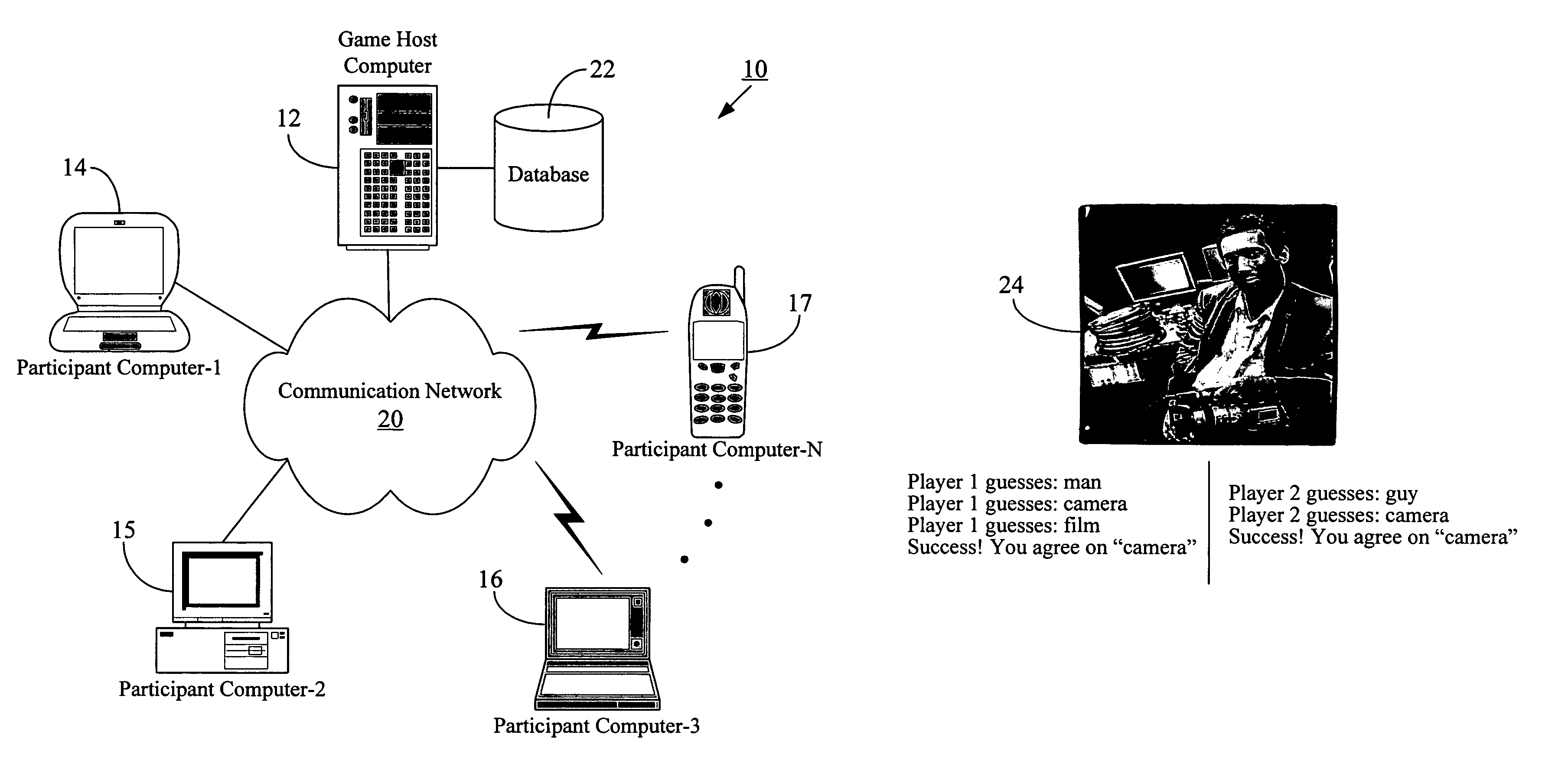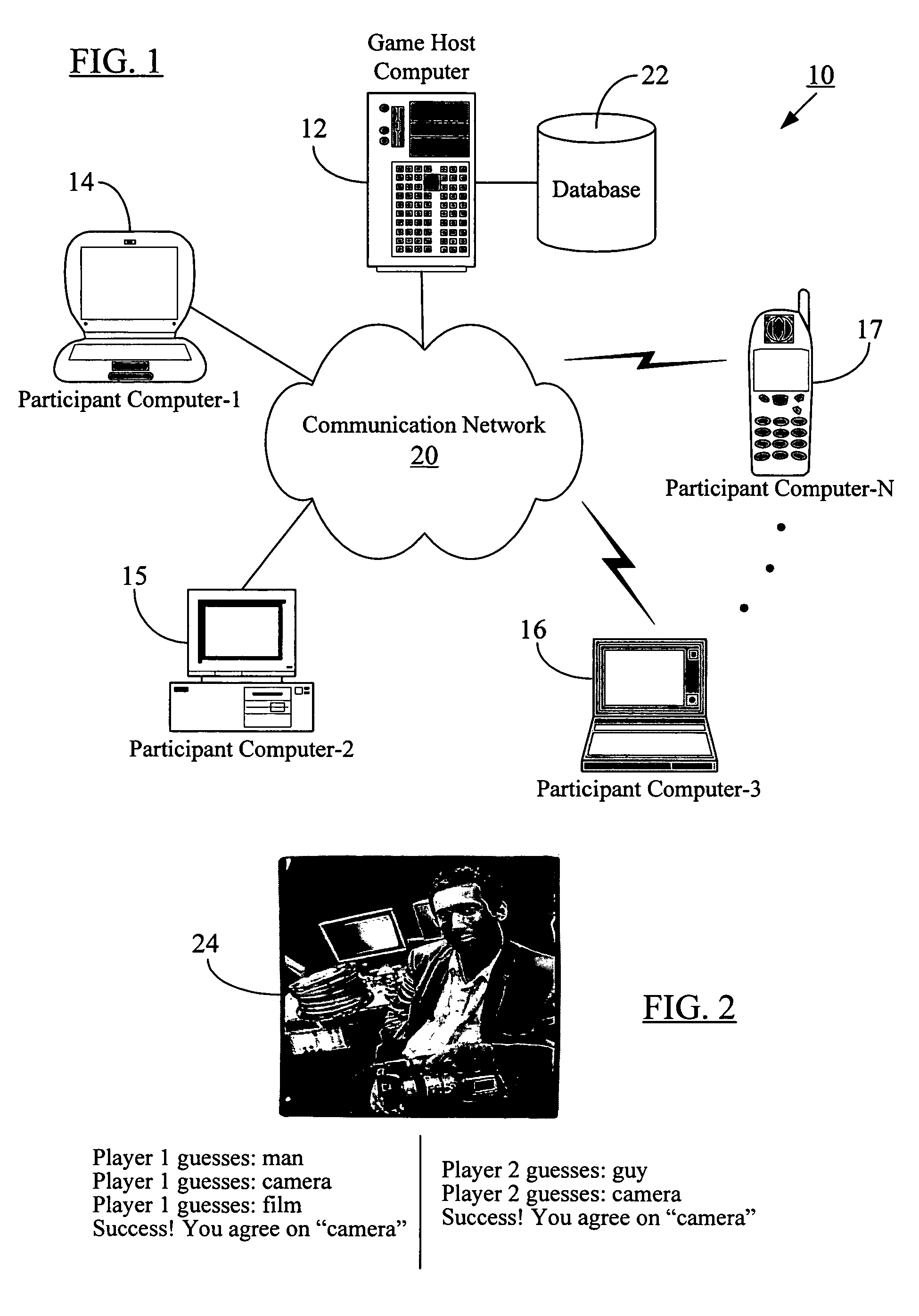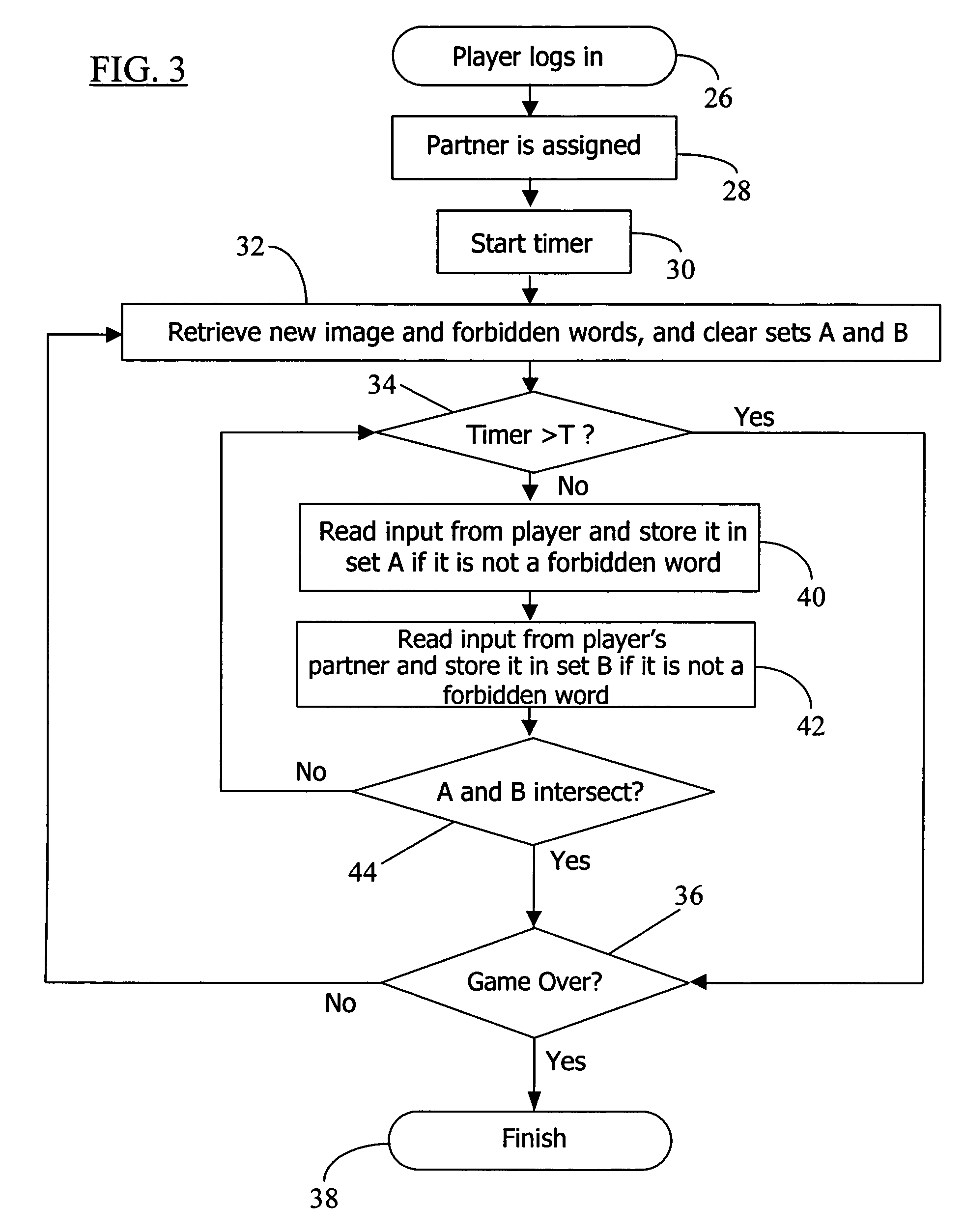Method for labeling images through a computer game
a computer game and image technology, applied in the field of image labeling through a computer game, can solve the problems of not being able to write a program that can automatically label images in any meaningful way, being difficult for current computer programs, and being difficult to achieve the method, though somewhat successful, and clearly not optimal
- Summary
- Abstract
- Description
- Claims
- Application Information
AI Technical Summary
Benefits of technology
Problems solved by technology
Method used
Image
Examples
Embodiment Construction
[0019]Reference will now be made in detail to some embodiments of the present disclosure, examples of which are illustrated in the accompanying figures. It is to be understood that the figures and descriptions of the present disclosure included herein illustrate and describe elements that are of particular relevance to the present disclosure, while eliminating, for the sake of clarity, other elements found in typical online games or Internet-based program applications. It is noted at the outset that the terms “connected”, “connecting,”“electrically connected,” etc., are used interchangeably herein to generally refer to the condition of being electrically connected. It is noted further that, for the sake of brevity and convenience, the term “image” is used hereinbelow to refer to not only static images, but also to sound cli
[0020]and video clips, either individually or in combination, depending on the implementation of the online labeling game according to the present disclosure. Tha...
PUM
 Login to View More
Login to View More Abstract
Description
Claims
Application Information
 Login to View More
Login to View More - R&D
- Intellectual Property
- Life Sciences
- Materials
- Tech Scout
- Unparalleled Data Quality
- Higher Quality Content
- 60% Fewer Hallucinations
Browse by: Latest US Patents, China's latest patents, Technical Efficacy Thesaurus, Application Domain, Technology Topic, Popular Technical Reports.
© 2025 PatSnap. All rights reserved.Legal|Privacy policy|Modern Slavery Act Transparency Statement|Sitemap|About US| Contact US: help@patsnap.com



